The quest to understand what is safe and beneficial for our feline companions’ diets often leads us to investigate the inclusion of various foods. Among these inquiries, whether peas are safe for cats and how many peas cats can eat stands out.
Yes, cats can eat peas in moderation, and you need to ensure peas are a small part of your cat’s balanced diet and not a primary food source.
This article delves into the intricacies of feeding peas to cats, exploring their nutritional value and addressing the fundamental question: are peas safe for cats?
Can I Safely Give Peas To My Cat?
As we delve into feeding peas to cats, we must assess the potential benefits and risks associated with incorporating this vegetable into their diets. While peas are not toxic to cats, their nutritional value and compatibility with feline dietary needs warrant careful consideration.
Benefits of Feeding Peas to Cats
- Fiber and Digestive Health
Peas contain dietary fiber, which can contribute to digestive health and regularity. In small amounts, fiber can aid in preventing constipation and supporting gastrointestinal well-being.
- Additional Nutrients
Peas offer vitamins such as vitamins A and C and minerals like potassium and magnesium. These nutrients can provide supplementary support to a cat’s overall health.
Risks of Feeding Peas to Cats
Cats require complete and balanced proteins to meet their unique nutritional needs. While peas contain protein, they are considered an incomplete protein source for felines.
- Carbohydrate Content
Cats have a limited capacity to process carbohydrates. Introducing too many carbohydrates into their diet can lead to weight gain, diabetes, and other health issues.
- Displacement of Animal Proteins
Feeding peas in excess may inadvertently displace animal-based proteins from a cat’s diet, leading to nutritional imbalances and deficiencies.
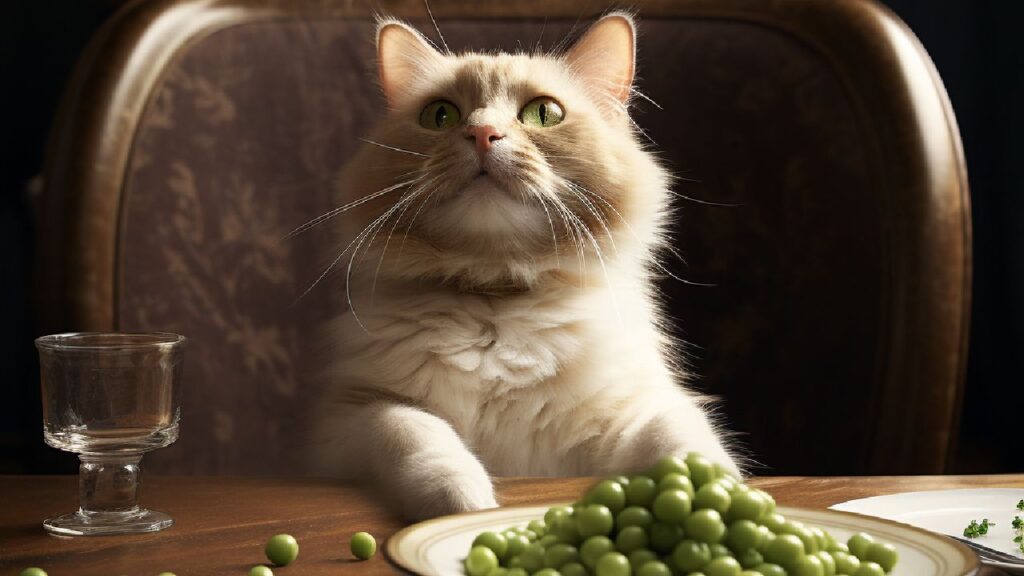
A Nutritional Investigation Into Peas and Cats
Peas, a popular vegetable among humans, offer a range of nutrients that contribute to a balanced human diet. However, cats have distinct nutritional requirements due to their evolutionary history as obligate carnivores.
The Nutritional Profile of Peas
Peas, both garden peas and snow peas, are characterized by their vibrant green color and subtle sweetness. From a nutritional perspective, peas offer a spectrum of vitamins, minerals, and dietary fiber.
They are particularly rich in vitamins A, C, and K, providing valuable folate and dietary fiber. Additionally, peas contain a modest amount of protein and carbohydrates.
Adverse Reactions and Moderation
When considering adding peas to a cat’s diet, it’s essential to be aware of many adverse reactions to peas that may occur and to exercise moderation to ensure your cat’s well-being.
Potential Gastrointestinal Upset
Cats have delicate digestive systems that may react sensitively to dietary changes. Introducing a new food like peas can lead to gastrointestinal upset, resulting in symptoms such as vomiting, diarrhea, or even flatulence.
These symptoms are indicative of the digestive system adapting to the new addition.
Monitoring for Allergic Reactions
While cats are less likely to develop allergies than dogs, monitoring for any signs of allergic reactions when introducing new foods is essential.
Allergic reactions can manifest as skin irritations, itching, excessive grooming, and respiratory issues. If you notice any unusual symptoms after feeding your cat peas, it’s crucial to consult a veterinarian.
Safely Introducing Peas to Your Cat
Introducing peas to your cat’s diet should be approached cautiously to ensure their safety and well-being. Consider the following steps to ensure a smooth and safe transition.
Consultation with Your Veterinarian
Consult your veterinarian before incorporating peas or new food into your cat’s diet. A veterinarian familiar with your cat’s health history can provide personalized guidance on whether peas suit your cat’s needs. They can also advise on the appropriate portion size and frequency of inclusion.
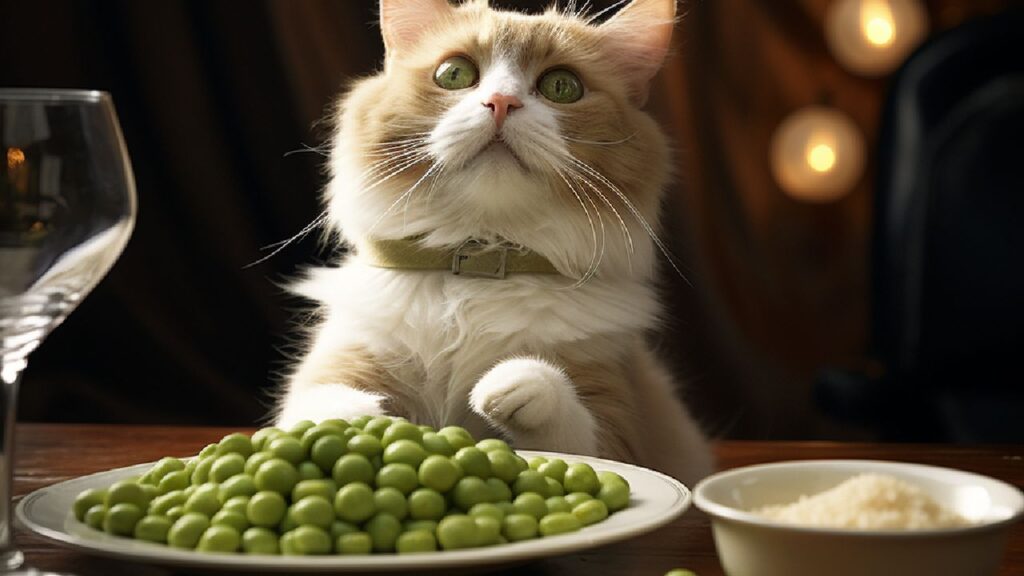
Practicing Moderation and Observation
If your veterinarian approves the inclusion of peas in your cat’s diet, it’s crucial to practice moderation. Peas should be considered a supplementary treat rather than a staple food. Begin by offering a small amount of cooked, plain peas to assess how your cat reacts.
Observe their behavior, digestion, and overall well-being. When introducing any new food, including peas, to your cat’s diet, consider the following guidelines:
Start Slowly: Begin with a small portion to gauge your cat’s reaction. Gradually increase the amount over time if your cat shows no adverse effects.
Monitor Digestive Health: Watch for any signs of gastrointestinal upset, such as vomiting, diarrhea, or changes in appetite.
Observe Behavior: Pay attention to any changes in behavior, energy levels, or litter box habits.
Consult at the First Sign of Concern: If you notice any adverse reactions or changes in your cat’s health, consult your veterinarian immediately.
Conclusion
Navigating the landscape of feline nutrition is a journey that requires careful consideration, research, and a deep understanding of our cats’ unique dietary needs. Whether peas are safe for cats reflects a broader commitment to providing our feline companions with the best care and nutrition.

FAQs
Can cats develop allergies to peas?
While cats are less prone to allergies than dogs, they can still develop sensitivities to certain foods, including plant-based ones like peas. Look for signs of allergic reactions, such as itching or irritations.
Can feeding peas lead to nutrient imbalances in my cat’s diet?
While peas offer some nutrients, they should not replace essential animal-based proteins in your cat’s diet. Feeding peas in excess could lead to nutrient imbalances and deficiencies.
Are there other safe and beneficial treats for my cat besides peas?
There are several safe and nutritious treat options for cats. Commercial cat treats made from high-quality ingredients are available, or you can offer small portions of cooked meats like chicken or turkey as treats.
Can peas cause urinary problems in cats?
Peas themselves are not typically linked to urinary issues in cats. However, a diet high in plant-based ingredients, including peas, could lead to imbalances in urinary pH levels.
Can cats with dietary restrictions or health conditions eat peas?
Cats with specific dietary restrictions or health conditions should only have new foods, including peas, introduced under the guidance of a veterinarian.
What should I do if my cat refuses to eat peas?
Cats can be selective eaters, and their preferences vary. If your cat refuses peas, don’t force them. Focus on providing nutritionally complete cat food that meets their needs.


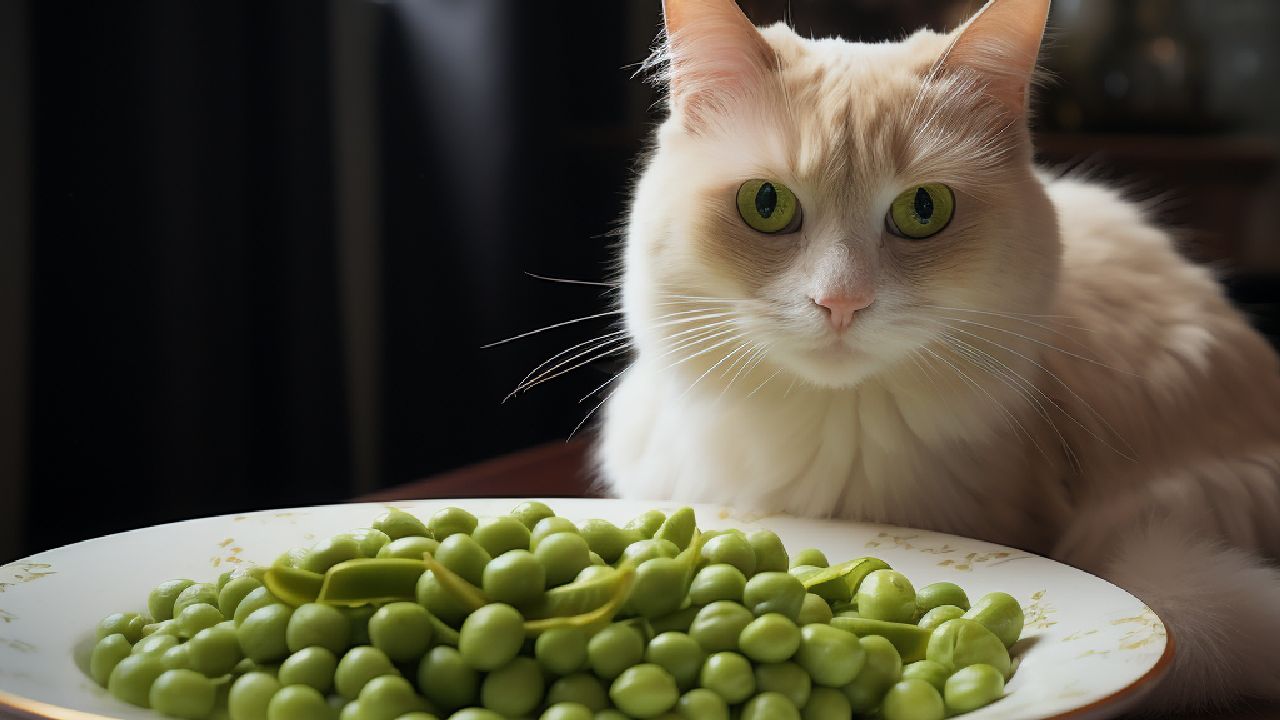
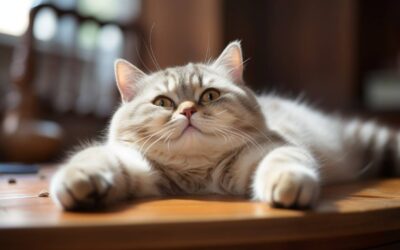
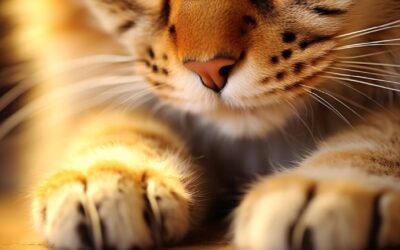

0 Comments